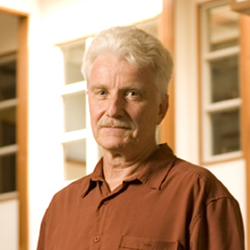Philip J. Cook Ph.D.
 ITT/Sanford Professor of Public Policy
ITT/Sanford Professor of Public Policy
Duke University
Email: pcook@duke.edu
Discipline: Public Policy, Economics
Expertise: Alcohol Control, Guns and Violence
Investigator Award 
The Health and Social Consequences of Alcohol Taxation and ControlAward Year: 2002 For his Investigator Award project, The Health and Social Consequences of Alcohol Taxation and Control, Dr. Cook produces a broad and comprehensive account of the economic and public health effects of alcohol-excise taxation, age-based prohibition, advertising restrictions, and other control measures. The interesting history of alcohol control and the alcoholism movement is developed as important background in understanding current debates. Other frameworks, especially those of economic theory and of public health, are developed as alternative bases for characterizing the problem and what should be done about it. Tobacco regulation offers an interesting point of comparison; tobacco and alcohol problems have much in common, but recent public policy approaches to these problems have differed. Finally, a set of recommendations about the appropriate level of control and taxation for alcohol are developed and related to the evidence on consequences.
Background 
Philip J. Cook is a ITT/Sanford Professor of Public Policy and professor of economics and sociology at Duke University. He served as director and chair of Duke's Sanford Institute of Public Policy from 1985-9, and again from 1997-9. Dr. Cook received his B.A. with high distinction from the University of Michigan in 1968, and his Ph.D. in economics from the University of California, Berkeley in 1973. He joined the Duke faculty in that year. He has served as consultant to the U.S. Department of Justice (Criminal Division) and to the U.S. Department of Treasury (Enforcement Division). His service with the National Academies includes membership on expert panels dealing with alcohol-abuse prevention, with violence, and with school rampage shootings. He is currently a member of the NRC's Committee on Law and Justice, and was until recently a member of the Division Committee for the Behavioral and Social Sciences and Education. One strand of Dr. Cook's research concerns the prevention of alcohol-related problems through restrictions on alcohol availability. An early article was the first to demonstrate persuasively that alcohol taxes have a direct effect on the death rate of heavy drinkers, and subsequent research demonstrated the moderate efficacy of minimum-purchase-age laws in preventing fatal crashes. Together with Michael J. Moore, he focused on the effects of beer taxes on youthful drinking and the consequences thereof, finding that more restrictive policies result in lower rates of abuse, higher college graduation rates and lower crime rates. A second strand has concerned the costs and consequences of the widespread availability of guns, and what might be done about it. His recent books (with Jens Ludwig) include Gun Violence: The Real Costs (Oxford University Press, 2000), which develops and applies a framework for assessing costs that is grounded in economic theory and is quite at odds with the traditional "COI" framework; and Evaluating Gun Policy (Brookings Institution Press, 2003), an edited collection of original contributions. Dr. Cook has also co-authored two other books with Charles Clotfelter on the state lotteries (Selling Hope: State Lotteries in America, Harvard University Press, 1989), and with Robert H. Frank on the causes and consequences of the growing inequality of earnings (The Winner-Take-All Society, The Free Press, 1995). The latter analyzes the causes and consequences of the growing inequality of earnings, and demonstrates that for labor markets organized like tournaments, there tends to be overentry and excessive spending on "positioning." This pattern, long common in entertainment and professional sports, appears to increasingly characterize the elite professions, including law, business management, and sales. The Winner-Take-All Society was named a "Notable Book of the Year, 1995" by the New York Times Book Review. Dr. Cook is a member of the Institute of Medicine of the National Academy of Sciences, and an honorary Fellow in the American Society of Criminology.
- Cook, P.J., Durrance, C.P. The virtuous tax: Lifesaving and crime-prevention effects of the 1991 federal alcohol-tax increase. Journal of Health Economics, 2013, 32(1):261–267.
- Sorenson, S.B., Cook, P.J. We've Got a Gun: Comparing Reports of Adolescents and Their Parents about Household Firearms. J of Community Psychology, 2008, 36(1): 1-19.
- Cook, P.J., Ludwig, J., Venkatesh, S.A., Braga, A.A. Underground Gun Markets. The Economic Journal, 2007, 117(524): 588-618.
- Cook, P.J., Reuter, P. When Is Alcohol Just Another Drug? Some Thoughts on Research and Policy. Addiction, 2007, 102(8): 1183-8.
- Cook, P.J., Ludwig, J. Aiming for Evidence-Based Gun Policy. J of Policy Analysis and Management, 2006, 25(3): 691-735.
- Cook, P.J., Ludwig, J. The Social Costs of Gun Ownership. J of Public Economics, 2006, 90(1-2): 379-91.
- Cook, P.J., Ostermann, J., Sloan, F.A. Are Alcohol Excise Taxes Good for Us? Short and Long-Term Effects on Mortality Rates. NBER Working Paper , Feb 2005, 11138.
- Cook, P. The Net Effect of an Alcohol Tax Increase on Death Rates in Middle Age. American Economic Review, May 2005, 278-81.
- Bar-Shalom, A., Cook-Deegan, R. Patents and Innovation in Cancer Therapeutics: Lessons from CellPro. Milbank Quarterly, 2002, 80(4): 637-76.
- Cook-Deegan, R.M., McCormack, S.J. Intellectual Property. Patents, Secrecy, and DNA. Science, 2001, 293(5528): 217.
- Cook-Deegan, R.M. Privacy, Families, and Human Subject Protections: Some Lessons from Pedigree Research. J of Continuing Education for Health Professionals, 2001, 21(4): 224-37.
